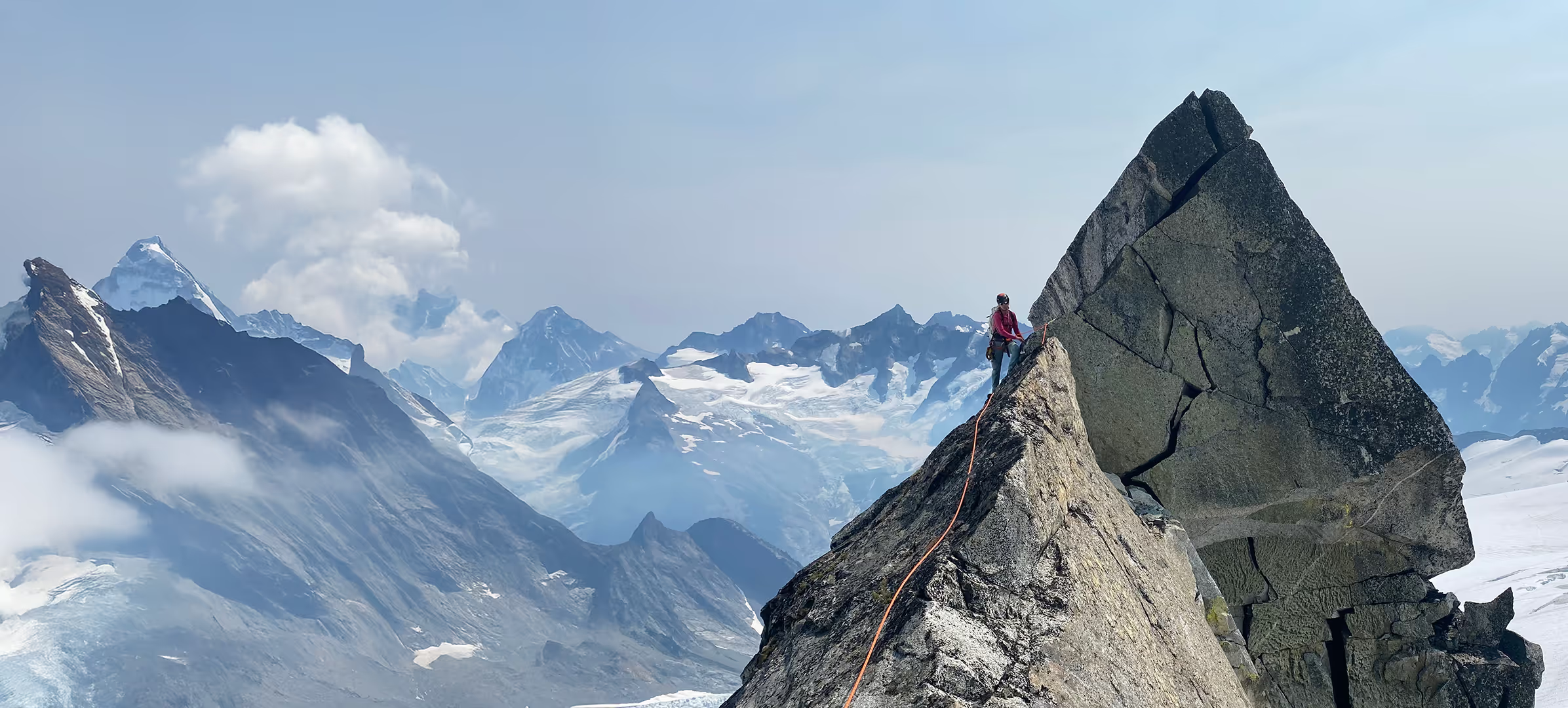Rock Guide Program
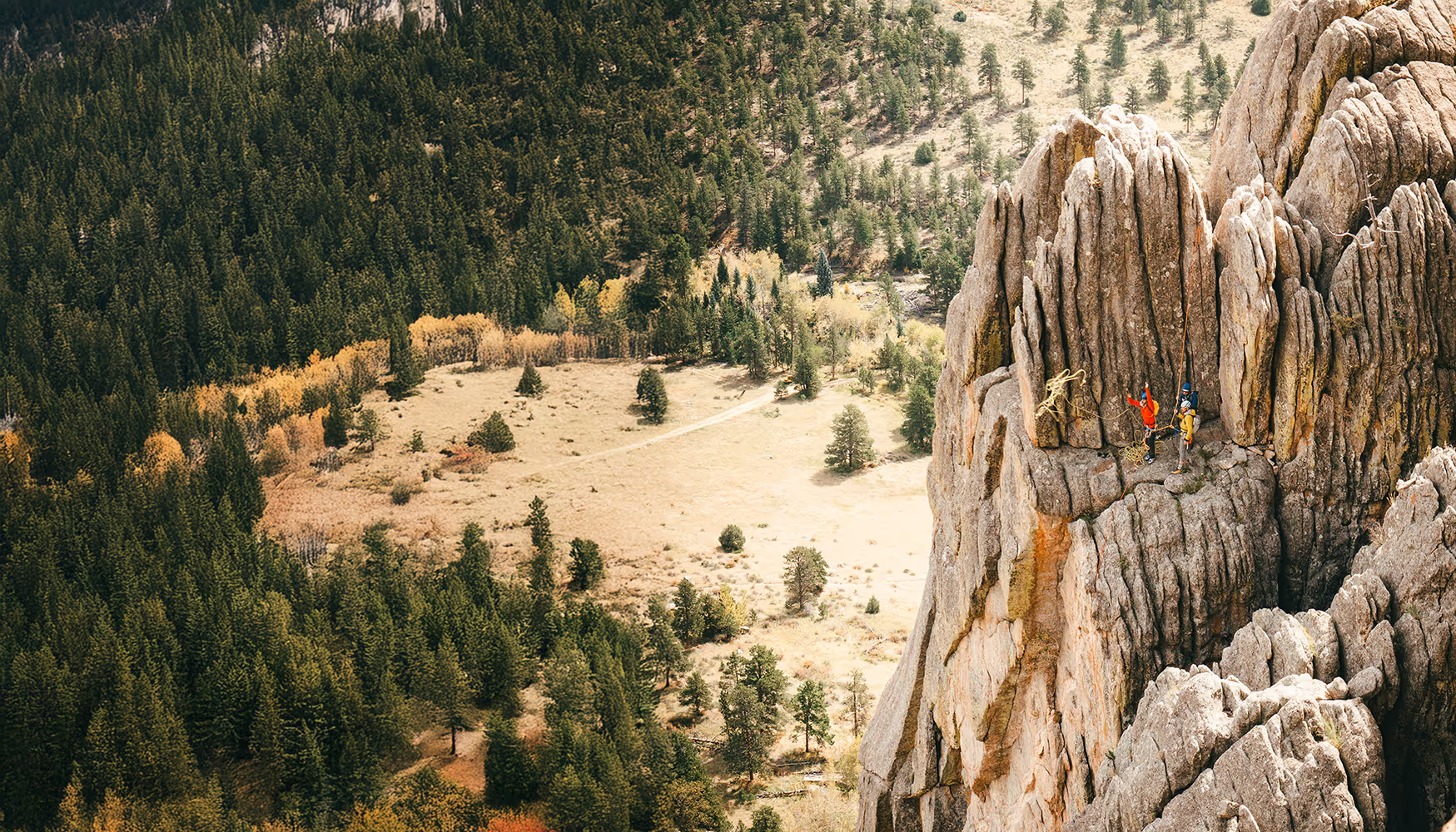
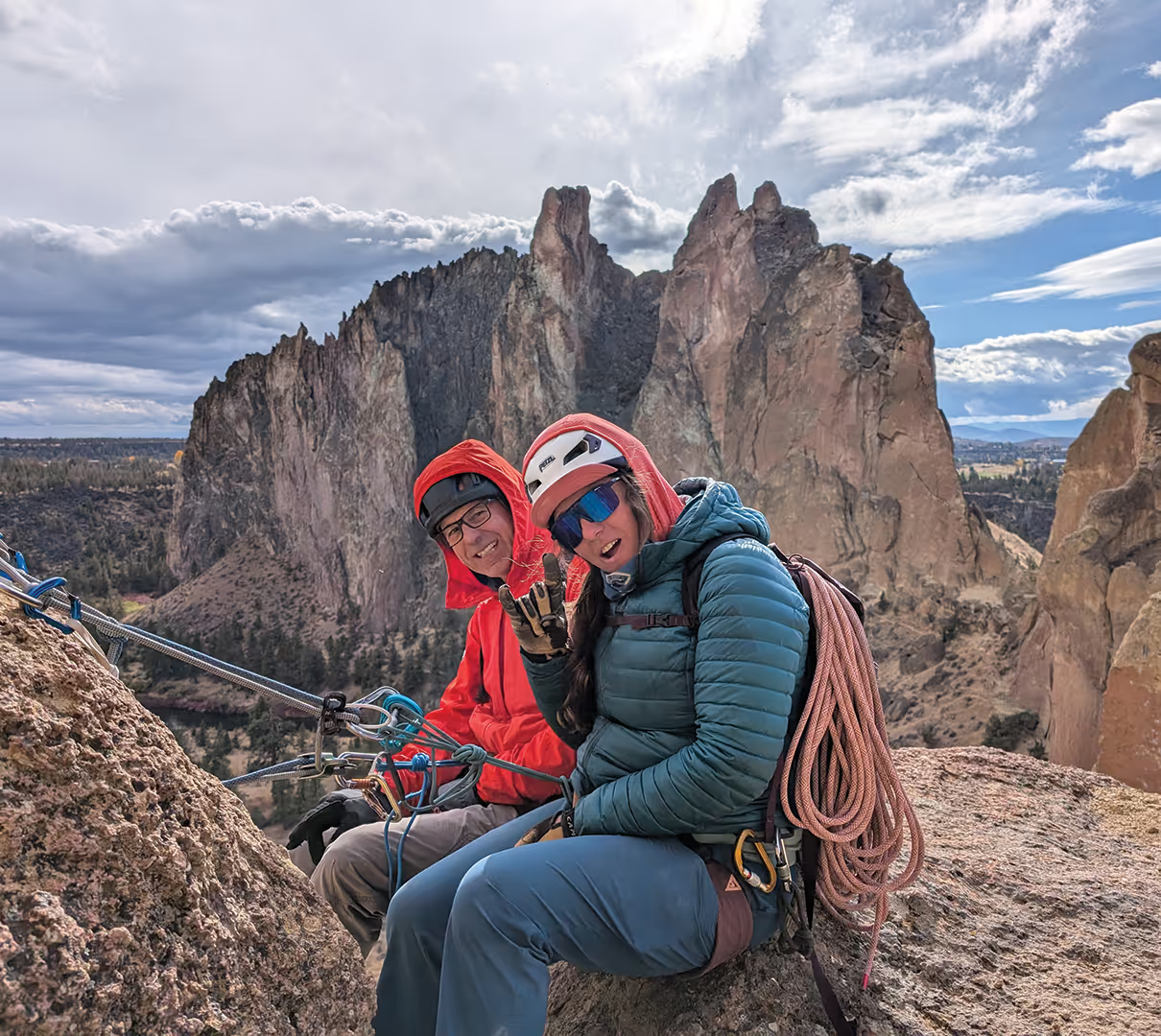
About
The AMGA Rock Guide Certification is designed for guides who lead clients in technical, multi-pitch rock terrain. This program focuses on introducing and refining rock guiding skills for multi-pitch routes, technical descents, short roping, and short pitching. Additionally, it covers rock rescue techniques and movement evaluation to ensure secure and efficient guiding in complex rock environments.
Please note, the AMGA welcomes both skiers and splitboarders into the program. For simplicity, “ski” is used throughout this page. Please note that when “ski” is used, it is meant to include “ski and splitboard” or “skier and splitboarder.”
Program Overview
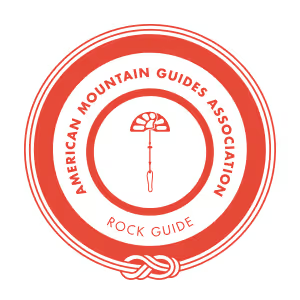




Program Details
The Rock Guide Course (RGC) is the entry-level course in the AMGA Rock Guide Discipline and the recommended starting point for the Mountain Guide Track. Designed for guides with an extensive rock climbing background, this course focuses on guiding techniques for routes up to Grade III and 5.9+, with an emphasis on risk management, technical systems, and client experience.
The RGC includes indoor and outdoor classroom time aimed at transforming experienced recreational rock climbers into professional guides. The course is designed to refine guiding techniques with direct supervision, instruction, and feedback while climbing single and multi-pitch rock routes with a variety of guiding challenges.
Participants are expected to have a strong foundation in recreational climbing skills and prior knowledge of knots, belaying, anchors, and protection strategies. You should be capable of leading the climbs listed on your submitted resume and arrive physically, mentally, and emotionally prepared for multiple consecutive days of climbing and instruction over the entirety of the course. Students should be prepared for early starts and long days that are physically and emotionally demanding.
To successfully complete the RGC, students must be able to demonstrate the following:
- Comfortably and safely lead traditional and sport routes up to 5.9+
- Proficiency with basic knots, including but not limited to: rewoven figure 8, figure 8 and overhand bight knots, bowline, clove hitch, munter hitch, munter mule hitch, flat overhand, double fisherman's, and autoblock, prusik and klemheist friction hitches
- Proficiency with multiple types of belay devices including assisted braking devices (ABDs)
- Proficiency with a variety of rappel devices
- Demonstrate proficiency at the Apprentice Rock Guide level in the following six assessment categories: risk management, client care, technical systems, terrain assessment, movement, and professionalism
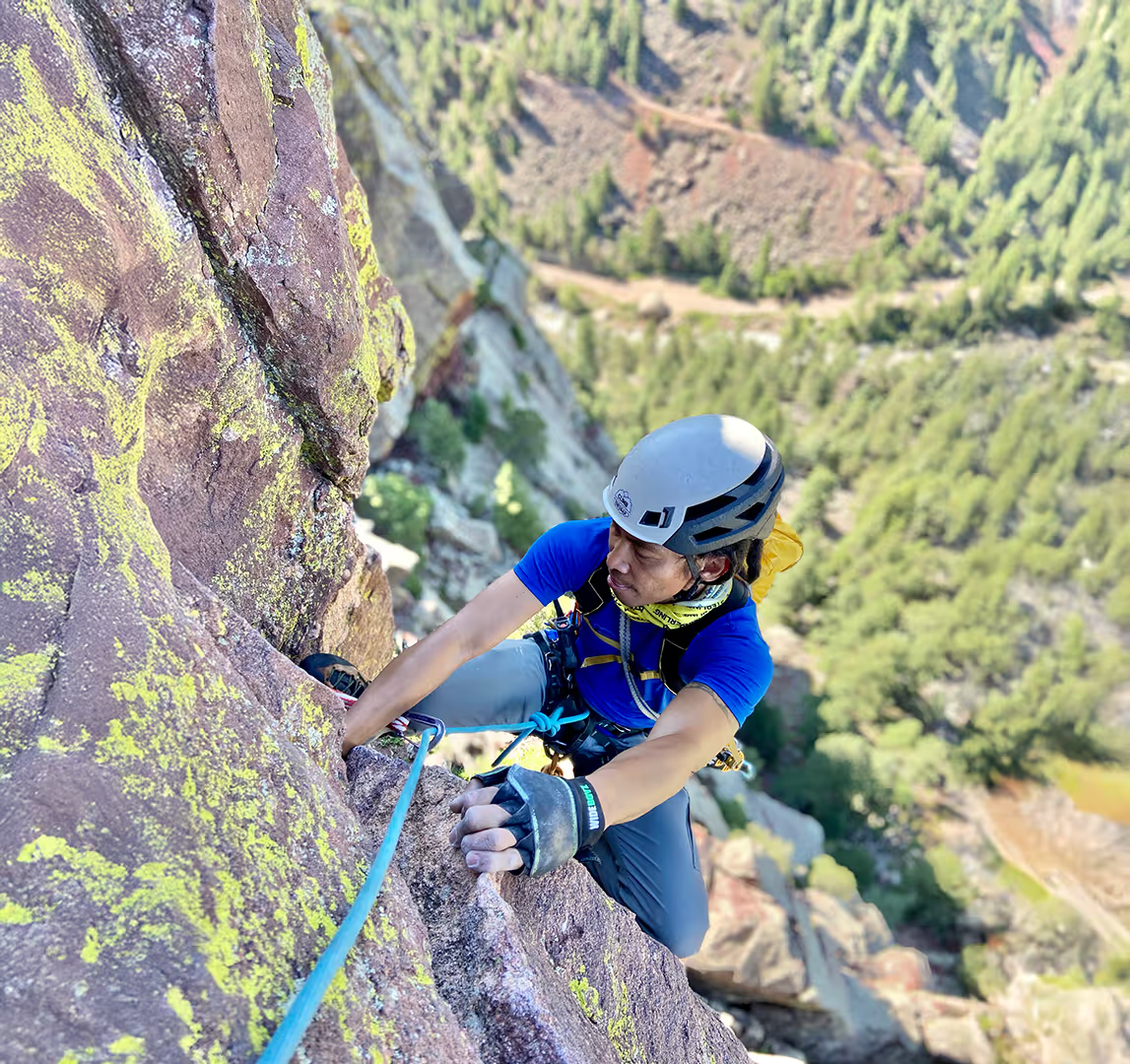
- Current AMGA member
- Current CPR Certification
- Current approved Wilderness First Responder Certification (WFR)
- Completion of the below route requirements, submitted via resume with application:
- Led 10 traditional climbs rated 5.10a or harder on various rock types (single or multi-pitch)
- Led or shared lead on 10 grade III trad rock routes
- Led or shared lead 50 multi-pitch rock routes
All students on Mountain Guide Programs must meet AMGA Essential Eligibility Criteria.
Additional Experience & Movement Criteria for RGC
- Minimum five years personal rock climbing experience
- Familiar with LNT Practices
The Advanced Rock Guide Course & Assistant Exam (ARGC/AE) covers the tools used when guiding and instructing multiple clients on longer routes up to Grade V. This includes management of 3rd and 4th class terrain, technical descents, simultaneous multi-client belaying, lowering and rappelling, management of transitions, and short roping and short pitching techniques. It emphasizes effective risk management while maximizing client rewards on long rock routes.
The ARGC is a course and includes instruction, coaching, debriefing, and assessment. The focus of the course is on principle-based learning, giving you strategies for problem solving through coaching and practical application in simulated guide/client scenarios. The assessment phase is known as the Assistant Exam. During the Assistant Exam, your guiding and instructional skills will be assessed. A final assessment will be based on your overall performance.
Assistant Exam
The Assistant Exam is intended to help determine whether or not your personal skills meet the minimum standards appropriate for guiding at the level of the AMGA Assistant Rock Guide. In addition, it serves as preparation for the final AMGA Rock Guide Exam.
Assessment Areas
- The movement standard is 5.10d/C2. This is assessed as a body of work over the entire program. Terrain may include bouldering, trad climbs, and sport climbs
- The Rock Rescue Drill
- Practical guiding days that include evaluation in the following six areas: risk management, technical systems, application, movement, client care, and professionalism
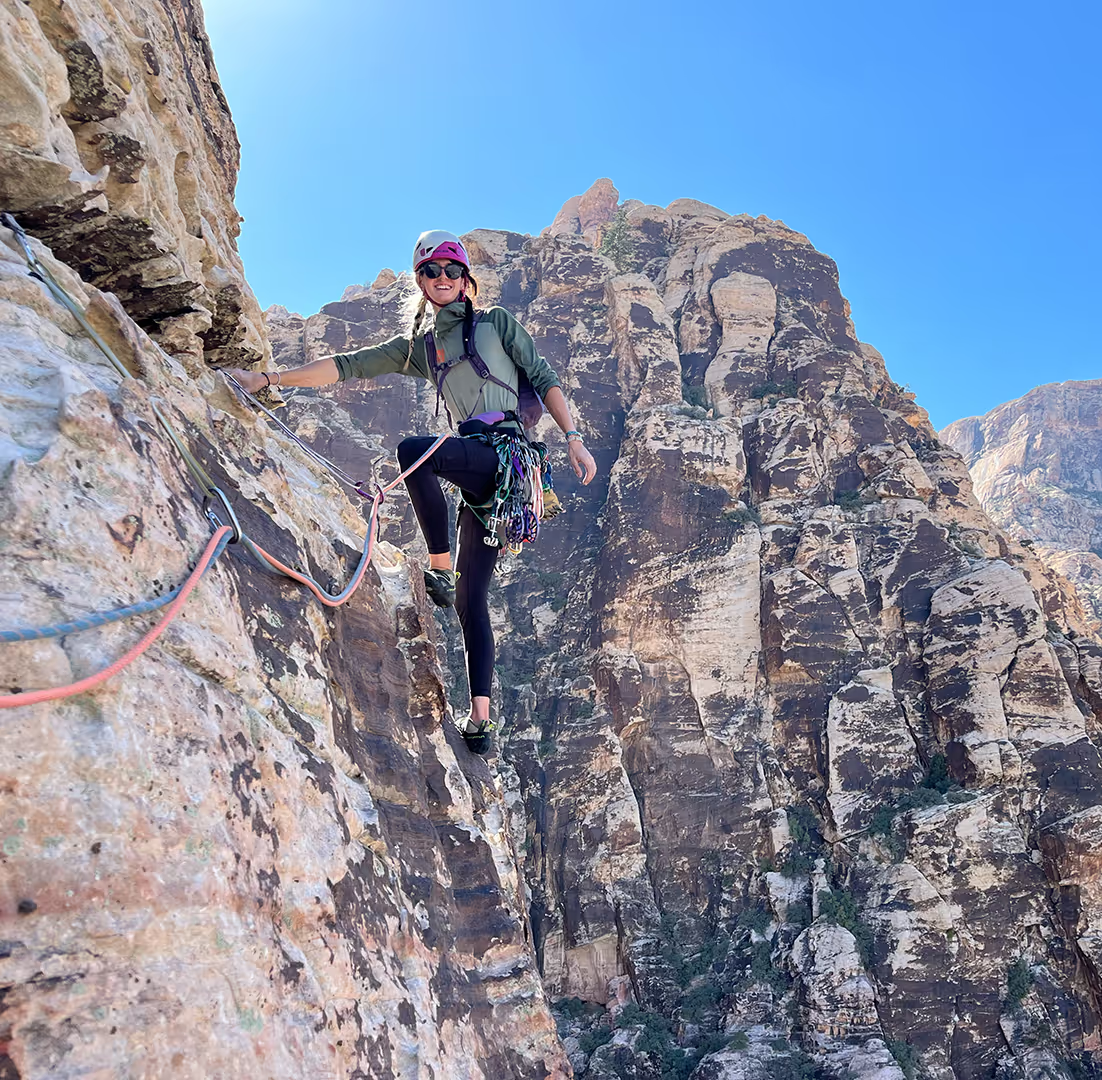
- Current AMGA member
- Current CPR Certification
- Current approved Wilderness First Responder Certification (WFR)
- Completion of the below route requirements, submitted via resume with application:
- Since completing the Rock Guide Course, you have led 10 different traditional routes rated 5.10d or harder
- You have led or shared lead on at least 10 Grade IV or longer traditional rock routes (5 of these have been completed since your Rock Guide Course)
- Since completing the Rock Guide Course, you have guided or mock guided a minimum of 20 rock routes Grade III or longer
Additional Experience and Movement Criteria for ARGC
- Familiar with LNT Practices
The goals of the six-day Rock Guide Exam (RGE) are to assess and certify rock-climbing guides at the AMGA and IFMGA international standards and to further the general education of students.
Format
During the exam students are expected to carry out guiding assignments given by the examiners. Students will serve as the guide to the examiners and the other participants on routes chosen for their complex guiding challenges. While acting as the guide, students are responsible for route planning, client orientation, risk management, and normal guiding practices. Route assignments and client profiles are usually given the night before. Students are responsible for obtaining information about the assigned route as well as alternative routes if the original objective proves infeasible.
Expectations
The longer routes (Grade IV and V) undertaken on the RGE require proficiency with multi-client belaying techniques, strong application skills, efficient climbing and use of protective systems, and quick and accurate transitions. A strong emphasis is placed on expertise in short roping clients.
Assessment Areas
- Evaluation of movement skills in rock terrain;
- Practical guiding days with evaluation in the following nine areas: risk management, client care, technical systems, application, terrain assessment, movement skills, mountain sense, professionalism, and instructional technique.
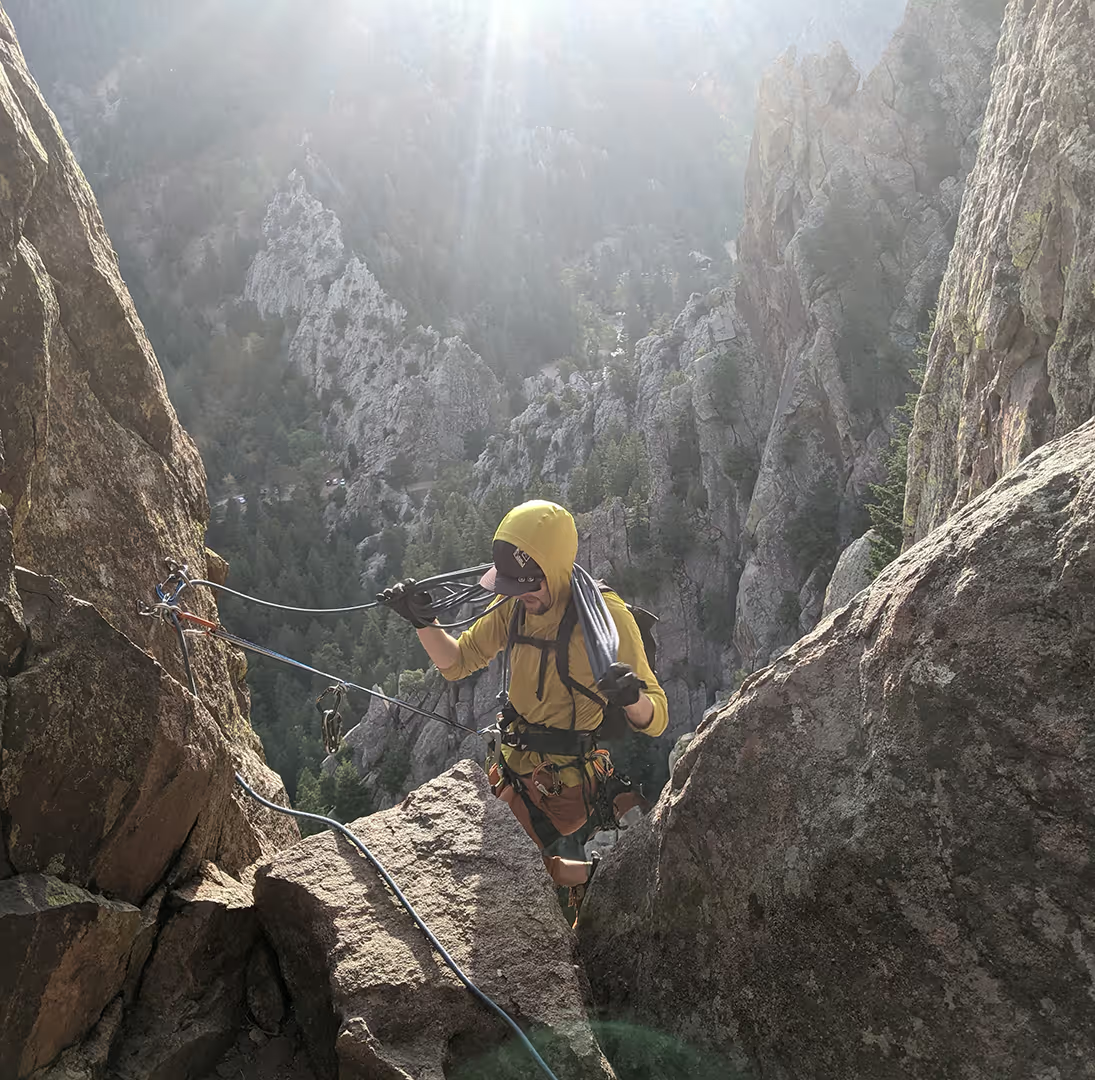
- Current AMGA member
- Current CPR Certification
- Current approved Wilderness First Responder Certification (WFR)
- Successful completion of the Advanced Rock Guide Course and Assistant Exam
- Completion of the below route requirements, submitted via resume with application
- Since completing the ARGC/AE, you have led or shared lead on 10 climbs that are rated 5.11a or harder (sport or traditional)
- Since completing the ARGC/AE, you have guided 20 days on multi-pitch traditional routes. Of these 20 days, 15 can be mock-guided, 7 are Grade III or longer, and 3 are Grade IV or longer
Additional Experience and Movement Criteria for RGE
- Familiar with LNT Practices
- Confidence leading traditional and sport routes up to 5.10+/A2, at the time of the exam
Program Schedule
Application Process
Alpine Guide Program
Gain the skills to guide on peaks, glaciers, and technical alpine terrain in all conditions.
